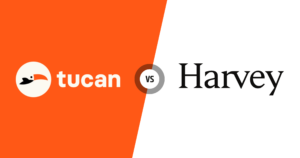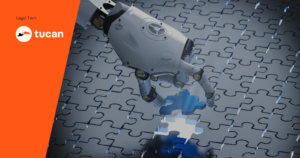Artificial intelligence (AI) has made enormous progress in recent years and has become an integral part of the modern working world. From the automation of business processes to support with complex decisions – the potential applications are many and varied. But with the opportunities also come challenges, particularly in the area of ethics and responsible use. In this article, we take a look at current developments in AI regulation, with a particular focus on the European Union and the United States, as well as voices from the industry itself.
Table of contents
The EU AI Act: a pioneer in terms of regulation
With the AI Act, the European Union has taken a pioneering step towards AI regulation. This law aims to create clear rules for the development and use of AI systems. Für Unternehmen, die sich auf KI-gestützte Lösungen spezialisiert haben, bedeutet dies eine sorgfältige Prüfung und Anpassung ihrer Produkte.
Key points of the EU AI Act:
- Risk-based approach: AI applications are divided into different risk categories.
- Strict requirements for high-risk AI systems
- Prohibition of certain AI practices that are considered unethical
- Transparency obligations for AI systems
Early preparation as a competitive advantage
One particularly interesting aspect of the EU AI Act is the opportunity for companies to gain a significant competitive advantage through early preparation. According to a report from Artificial Intelligence News, this could look like this:
- Building trust with customers: Companies that are already integrating the principles of the AI Act into their products and services are signaling a high degree of responsibility and future orientation to their customers.
- Optimization of internal processes: Early adaptation to the upcoming regulations enables companies to gradually optimize their internal processes.
- Innovative edge: Companies that address the requirements of the AI Act at an early stage can develop innovative solutions that are both compliant and competitive.
- Attractiveness for investors: Investors and stakeholders increasingly value sustainability and compliance. Companies that respond proactively to regulations can therefore be more attractive for investment.
- Helping to shape industry standards: Early adopters have the opportunity to help shape industry standards and position themselves as thought leaders.
The USA: A different approach
While the EU is focusing on comprehensive regulation, the USA is taking a slightly different approach. President Biden recently issued a national security memorandum on AI that focuses on specific areas.
Key aspects of the US strategy:
- Focus on national security and economic competitiveness
- Promoting AI innovation while minimizing risks at the same time
- Cooperation between government, private sector and research
According to a report by CoinGeek, the US Housing & Finance industry is looking for AI-supportive regulation that encourages innovation while addressing risk.
Voices from the industry: Anthropic's call for AI regulation
Interestingly, voices calling for stronger regulation are also coming from within the AI industry itself. A notable example of this is Anthropic, a leading AI company that recently has made an urgent appeal to the public and political decision-makers.
Anthropic's main arguments:
- Potential disasters: Anthropic warns of potential catastrophic consequences that could result from the uncontrolled use of advanced AI systems.
- Need for state supervision: The company emphasizes that the industry’s self-regulation is not sufficient and that stronger state supervision is required.
- Focus on advanced models: Particular attention should be paid to the regulation of AI systems that could develop human-like capabilities.
- Global coordination: Anthropic calls for international cooperation on AI regulation to establish global standards.
These demands underline the growing realization within the industry that responsible development and use of AI is essential.
Effects on companies
These developments present companies with both challenges and opportunities:
- Increased safety standards: Implementation of stricter safety protocols for AI systems.
- Transparency and accountability: Need to make the decision-making processes of AI systems more transparent and comprehensible.
- Ethical considerations: Increased inclusion of ethical aspects in AI development and application.
- Investment in research and development: Greater investment in research into AI safety could become necessary.
Conclusion and outlook
The regulation of AI is a complex and rapidly evolving field. While the EU is creating a comprehensive framework with the AI Act, the USA is taking a more focused approach. At the same time, voices from the industry such as Anthropic are calling for even stricter controls.
Our advice to CIOs and innovation managers
- Stay informed about regulatory developments
- Invest early in adapting your AI systems to upcoming regulations
- Seize the opportunity to gain a competitive advantage through proactive action
- Promote a culture of transparency and accountability in your company
- Take an active part in discussions on AI regulation in your respective industry
The future of AI lies in the balance between innovation and responsibility. Companies that recognize and implement this early on will be successful in the long term.
For further insights into the differences between European and American approaches to AI innovation, we recommend the article “The AI Divide: How European Firms Can Harness Their Regulatory Strengths and Learn from US Innovation”.
Gain your competitive advantage!
Get a free consultation:
We are happy to advise you on your needs personally and free of charge!
🔎 Personal needs analysis
👾 Personal product consultation
🙋♀️ Answers to all your questions



